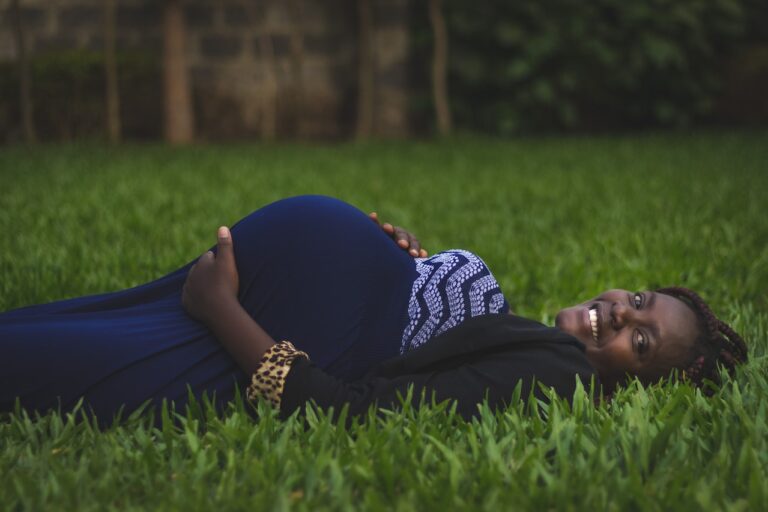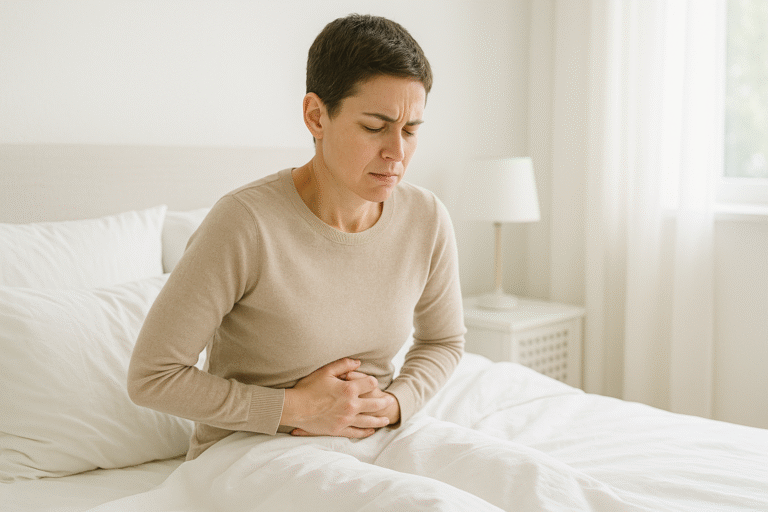Planning pregnancy with Crohn’s disease can stir up a lot of what ifs. You want a healthy baby, a steady gut, and a plan that feels calm rather than complicated. The good news is that many people have healthy pregnancies with Crohn’s when symptoms are settled and support is in place. This page sets out simple, evidence-informed ways to feel more confident, with clear advice on managing Crohn’s during pregnancy, medication safety, nutrition, and support.
Can You Get Pregnant With Crohn’s Disease?
Yes. Getting pregnant with Crohn’s disease is possible, and many have smooth pregnancies and healthy babies. Conception tends to be easier when the condition is settled. Aim for staying in remission before trying, and speak to your gastroenterology and obstetric teams early. Do not stop any treatment without medical advice, even if you feel well.
Pregnancy With Crohn’s Disease What To Expect
Symptoms can change in pregnancy. Some people improve, some stay the same, and some notice a Crohn’s flare up during pregnancy. Typical Crohn’s disease pregnancy symptoms include abdominal pain, diarrhoea, fatigue, and weight changes. Keep a simple plan and talk to your IBD team early if anything shifts. IBD and pregnancy care works best when your gastroenterology team and midwifery or obstetric team coordinate your prenatal care.
Managing Crohn’s During Pregnancy Medications Symptoms And Flares
Do not make medication changes without specialist advice. Many treatments for inflammatory bowel disease are compatible with pregnancy. Aminosalicylates and biologics are often used, while methotrexate and thalidomide should be avoided because of risks to foetal development. If you notice Crohn’s flares during pregnancy, contact your team promptly so they can adjust care and support hydration and nutrition.
When Symptoms Change In Pregnancy
Watch for patterns that signal a flare during pregnancy, such as ongoing diarrhoea, bleeding, pain that limits eating, or fever. Rapid contact usually means simpler fixes, from checking for infections to tweaking dosing. Keep notes on bowel frequency, pain, weight, and any new triggers, then share these in appointments.
Diet For Crohn’s During Pregnancy
Nutrition matters, and perfection is not required. Small, frequent meals can be easier on the gut. Work with a dietitian to balance energy, protein, calcium, iron, B12, and folate. Prenatal vitamins are commonly recommended, especially folic acid. Anaemia in pregnancy is common in IBD, so your team may monitor iron and B12 and offer supplements if needed. A simple Crohn’s pregnancy diet rule of thumb is to prioritise foods you tolerate well, sip fluids often, and seek help early if eating is hard.
Risks Of Crohn’s Disease In Pregnancy
Most people do well, especially when Crohn’s is settled at conception. Active disease can raise the chance of complications like preterm birth or low birthweight. This is why managing Crohn’s during pregnancy focuses on keeping inflammation quiet, protecting nutrition, and coordinating prenatal care. If you have had surgery for Crohn’s, ask about any implications for delivery, and make a birth plan with your obstetric team.
Practical Tips That Help
- Book a preconception chat and talk to your IBD team about timing, medicines, and vaccines.
- Keep a symptom and food note on your phone. Share it in appointments.
- Plan rest, gentle activity, and hydration. Small, steady habits beat big overhauls.
- Line up help for scan days or if a flare hits, for example school runs or meals.
Support For Partners
Partners often want to fix everything, which is charming and not always practical. The most helpful support is simple. Ask what is needed today, from lifts to appointments to batch cooking. Learn the signs of a flare, and help keep an eye on medicines, hydration, and rest. If you are unsure, say so, then ask what would help most.
It can also help to hear from others who have been there. Our online support groups and forums connect people who understand the realities of pregnancy with Crohn’s disease.
Remember: This blog post is intended for informational purposes only and should not be construed as medical advice. Always consult with your doctor to discuss your individual situation and determine the best course of treatment for you. Do not start or stop medications without speaking to a doctor. Do not change your diet without speaking to your doctor or a healthcare professional.
Many people ask whether pregnancy itself worsens IBD. The reassuring answer is that with good planning and responsive care, most will do well.





